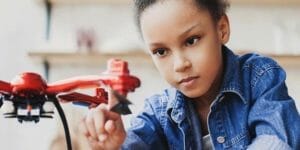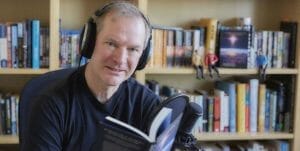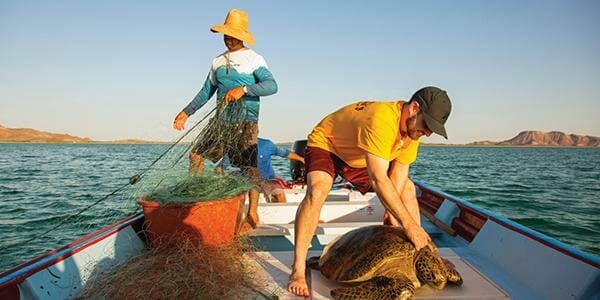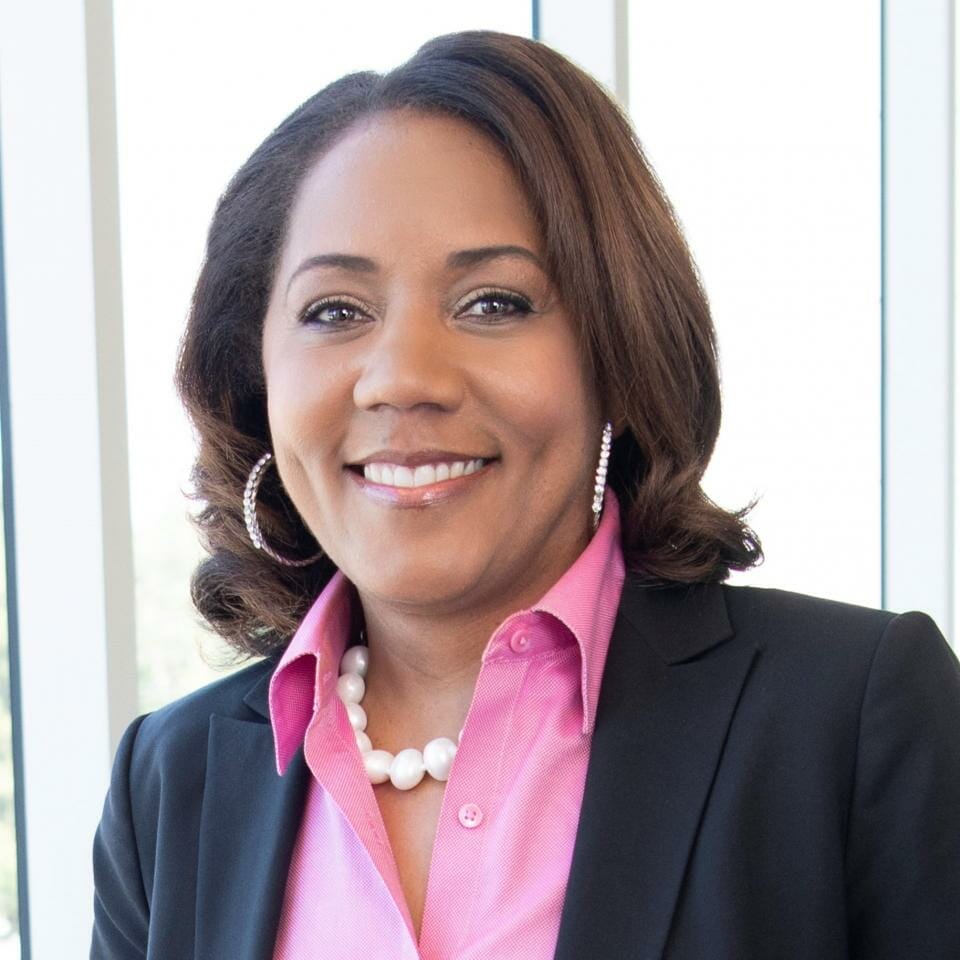SFIS Newsletter – November 2020
Return to the Newsletter Archive

Environmental consciousness guides new education endeavor
Engineering shapes almost every facet of how humans live, putting pressure on engineers to constantly deliver new and better solutions to social and technological challenges. But what are the environmental consequences of these solutions? Assistant Professor Darshan Karwat and Associate Director for Research Ira Bennett have created a new engineering curriculum dedicated to teaching environmentally and socially conscious engineering practices.

ASU student leads ‘Million Girls Moonshot’ movement at Intel Foundation
The Intel Foundation just announced their Million Girls Moonshot initiative to introduce kids in underrepresented communities to STEM education. Million Girls Moonshot is a collaborative, nationwide movement involving a wide range of cross-sector partners that is designed to break down the systemic barriers that have kept girls and youth of color out of STEM. PhD candidate Gabriella Gonzales helped to develop this initiative.

Creative nonfiction pioneer on his “last 8,000 days’
Professor Lee Gutkind reflects on life as a writer and the impact of aging. He has recently published his memoir, “My Last Eight Thousand Days: An American Male in his Seventies,” a deeply personal reflection on the journey that brought him to where he is now.
Research

Future Rising looks back to design for the future
When College of Global Futures Associate Dean and SFIS Professor Andrew Maynard envisions the future, he thinks of a soap bubble. With its swirling colors and spherical resemblance to the Earth, it’s an object that captures the idea of a chaotic, yet beautiful future. But it also captures how incredibly fragile the future can be. In his newest book, “Future Rising: A Journey From the Past to the Edge of Tomorrow,” Maynard embarks on a 14-billion-year historical journey to show readers how we started and what we are steering toward.

Ocean plastic does not lead to marine life population decline, ASU study shows
Is plastic pollution causing populations of large sea animals to decline? According to a new study led by Assistant Research Professor Jesse Senko, there is no scientific evidence to support that it is. The analysis of decades of research revealed no evidence that plastic pollution causes overall losses in megafauna species

HSD PhD student Mateo Pimentel published an article, “Waste Management and the Elimination of Mercury in Tailings from Artisanal and Small-Scale Gold Mining in the Andes Municipality of Antioquia, Colombia,” about inefficiency of mercury-use in gold extraction and the superior efficiency of centrifugal and gravimetric methods.

Assistant Professor Emma Frow participated in SynBioBeta 2020. She was a speaker during the session “Life, liberty, and the pursuit of happiness: The synthetic biology dream?” which focused on whether and how emerging visions of the American bioeconomy might be reconciled with the values and aspirations set out in the Declaration of Independence. And over the summer, she was a panelist in “Community Conversation: Building with Biology” hosted by the Boston Museum of Science.
Recognition

Advancing environmental justice by making fisheries more equitable
HSD PhD student Gabby Lout was selected as a Global Human Rights Hub Graduate Fellow for the 2020-2021 academic school year for her current work around labor and human rights in the seafood sector. The Global Human Rights Hub brings together ASU faculty members from across ASU’s four campuses, who are actively researching issues related to global human rights.

| HSD PhD student Noa Bruhis was accepted to the 6th cohort of Homeward Bound, which is a global leadership initiative for women in STEMM which aims to heighten the influence and impact of women in making decisions that shape our planet. The program involves 11 months of training and a 3-week trip to Antarctica in March of 2022. |

| Barbara Whye, an HSD PhD student, was named to Fortune’s 2020 Most Powerful Women list. Whye is the chief diversity and inclusion officer and corporate vice president of social impact at Intel. |

| HSD PhD student Jieshu Wang, Professor Erik Johnston and other researchers co-authored a paper that was accepted for the CSCW 2020 workshop on Civic Technologies: Research, Practice, and Open Challenges. “Toward Understanding Civic Data Bias in 311 Systems: An Information Deserts Perspective” looks at how civic technologies are used, what their data tells us about local communities, and the nature, causes and impacts of biases in the data. |

| HSD PhD student Vanya Bisht recently published “Science Communication Needs To Go Beyond Communicating About The Physical World” in Science Talk, a non-profit organization that seeks to empower the science communication community. Bisht also moderated the webinar “Inequities and Power Struggles in Science Communication” for the STGlobal Consortium. |

| Professor of Practice Luke Tate was a panelist at “Digital Innovation in Education: Dealing With Now and Dreaming for Tomorrow,” hosted by Mannatt, discussing the challenges and opportunities of higher education remote learning. |

| Professor of Practice Darlene Cavalier was featured in an episode of “Weird But True” on Disney+, showing kids how they can be citizen science explorers. She also spoke with The Weather Channel about how anyone can do weather-related citizen science. |

| Sean Dudley, an HSD PhD student, was awarded a $500,000 grant by Intel to expand the technological infrastructure of the ASU Biodesign Clinical Testing Lab. He also recently presented to Cisco’s Higher Education Advisory Council (HEAC), discussing COVID-19 and the future of research. |

| Ed Finn, founding director of the Center for Science and the Imagination, participated in the SLSA 2020 Special Event “AI/IA: Promises and Perils of Augmented/Artificial Intelligence.” Finn spoke about the futures and responsibilities of augmented and artificial intelligence during the lightning talk ““How to Imagine AI: Cultural Frames for Thinking with Machines.” |
Alumni

| Master of Applied Ethics of Science, Technology and Engineering alumnus and College of Global Futures Professor of Practice Bruno Sarda joins the HOW Institute for Society as executive director. The HOW Institute for Society’s mission is to build and nurture a culture of moral leadership, principled decision-making and values-based behavior that enables individuals and institutions to meet the profound social, economic, and technological changes of the 21st Century to elevate humanity. |
Events
Nov 4 – PIT Colloquium: Truth, Fact, Time, Philosophy + History
Nov 5-19 – Salute to Service
Nov 6-7 – ASU Family Weekend
Nov 6 – Family Weekend Digital Community Coffeehouse
Nov 8 – Family Weekend Alumni Panel for College of Global Futures
Nov 10 – Governing for the Future
Publications
Robert Cook-Deegan
The Top Eight Nanometers: A Review of Human Nature on PBS
Issues
September 9, 2020
Darshan Karwat
Establishing a Field of Collaboration for Engineers, Scientists, and Community Groups: Incentives, Barriers, and Potential
Earth’s Future
September 25, 2020
Jesse Senko
Understanding individual and population-level effects of plastic pollution on marine megafauna
Endangered Species Research
October 12, 2020
Mateo Pimentel
Waste Management and the Elimination of Mercury in Tailings from Artisanal and Small-Scale Gold Mining in the Andes Municipality of Antioquia, Colombia
Mine Water and the Environment
October 14, 2020
John Nelson
Assessing solar geoengineering research funders: Insights from two US public deliberations
The Anthropocene Review
October 19, 2020
Robert Cook-Deegan
Reactions to the National Academies/Royal Society Report on Heritable Human Genome Editing
The CRISPR Journal
October 20, 2020
Diana Bowman
Disputes over when life begins may block cutting-edge reproductive technologies like mitochondrial replacement therapies
The Conversation
October 22, 2020
Vanya Bisht
Science Communication Needs To Go Beyond Communicating About The Physical World
Science Talk
October 22, 2020
Heather Ross
Where Is the Contact-Tracing Army We Were Supposed to Get?
Slate
November 2, 2020
Robert Cook-Deegan
Making Drugs Affordable
Issues
Fall 2020
Jieshu Wang, Erik Johnston
Toward Understanding Civic Data Bias in 311 Systems: An Information Deserts Perspective
CSCW 20
Marta Berbes
Pathways out of poverty through the lens of development resilience: an agent-based simulation
Ecology and Society
Lee Gutkind
My Last Eight Thousand Days: An American Male in His Seventies
University of Georgia Press
In the Media
Jeremy Babendure
Education in AZ from STEM to Ideas from the Business Community
Business Roundtable
September 27, 2020
Jameson Wetmore
Nanotechnology and Society: A Conversation with Jamey Wetmore
Stories from the NNI
September 28, 2020
Jameson Wetmore
Technologie rime-t-elle avec démocratie?
Libération
September 28, 2020
Timiebi Aganaba-Jeanty
Space Law
Arizona PBS Catalyst
September 29, 2020
Darlene Cavalier
Citizen Scientists Go Online During Pandemic
The Weather Channel
October 4, 2020
Lee Gutkind
Pittsburgh Author Explores Aging in ‘My Last Eight Thousand Days’
WESA
October 6, 2020
Diana Bowman
Here’s how ASU Law helps promote equality in the field
AZ Big Media
October 7, 2020
Robert Cook-Deegan
Should California invest $5.5 billion more into promising stem cell research?
The Mercury News
October 11, 2020
Lee Gutkind
My Last Eight-Thousand Days with Lee Gutkind
The Aging Gratefully Show
October 11, 2020
Katina Michael
COVIDSafe app ignored as Victoria considers GPS coronavirus tracking
The New Daily
October 16, 2002
Lee Gutkind
Made Local: Lee Gutkind
Pittsburgh Arts and Lectures
October 19, 2020
Jameson Wetmore
Shaping the Future of Society with Technology
Nano Matters
October 19, 2020
Katina Michael
Police to monitor Victorians with drones on AFL grand final day
3AW
October 22, 2020
Andrew Maynard
“Future Rising” By Andrew Maynard
WAMC
October 29, 2020
Jesse Senko
ASU study reveals holes in research of plastic’s effects on marine life
The State Press
October 29, 2020
Darlene Cavalier
Weird But True: Explorers
Disney+